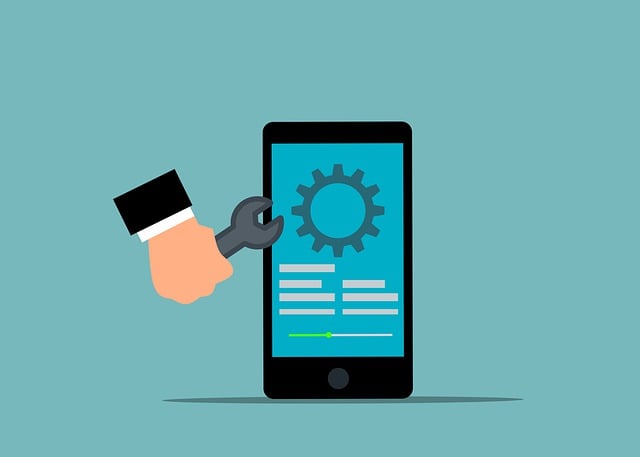Phone scams targeting charitable donations are on the rise in Hudson and New Hampshire. Protect yourself by understanding the Telephone Consumer Protection Act (TCPA) laws, recognizing suspicious calls, and verifying charity legitimacy before donating. Register for the National Do Not Call Registry, document spam incidents, and report them to local law enforcement or consult a Spam Call law firm in New Hampshire for guidance on stopping unwanted calls and protecting your community.
In Hudson, as in many parts of the country, phone scams targeting charitable donations are a persistent problem. Understanding these schemes and navigating the legal landscape is crucial to protecting yourself and your community from fraudsters. This guide offers top tips on identifying legitimate charities, leveraging New Hampshire’s TCPA and charity regulations, and reporting spam calls to help stop these deceptive practices. If you’ve fallen victim or know someone who has, consult a spam call law firm in New Hampshire for legal assistance.
Understanding the Issue: The Prevalence of Phone Scams in Hudson
In Hudson, as in many parts of New Hampshire, phone scams targeting charitable donations have become increasingly prevalent. Scammers often pose as legitimate charities, using emotional appeals and urgent language to pressure individuals into making impulsive donations over the phone. This deceptive practice not only steals from those who genuinely wish to support worthy causes but also undermines the work of genuine charitable organizations. Understanding this issue is the first step towards safeguarding yourself from such scams.
The Telephone Consumer Protection Act (TCPA) provides legal protections against unsolicited calls, including those made for charitable purposes. By familiarizing yourself with these laws and knowing how to recognize suspicious calls, you can significantly reduce the risk of falling victim to phone scams. If you receive an unexpected call asking for donations, verify the charity’s legitimacy through independent sources before making any commitments. Consulting a law firm specializing in TCPA cases in New Hampshire can also equip you with the knowledge and resources needed to navigate such situations effectively and hold scammers accountable.
Legal Framework: New Hampshire's TCPA and Charity Regulations
In New Hampshire, the Telephone Consumer Protection Act (TCPA) serves as a robust legal framework to curb spam calls, including those from charlatans posing as legitimate charities. This act not only restricts automated phone systems and prerecorded messages but also provides guidelines for charitable solicitations. The state’s charity regulations further ensure that organizations seeking donations adhere to strict standards.
Understanding these laws is crucial for residents of Hudson looking to protect themselves from phone scams. If you receive unsolicited calls promoting charities or asking for donations, it’s advisable to verify the organization’s legitimacy. A quick online search or contacting a reputable spam call law firm in New Hampshire, like ours, can help you determine if the call is genuine or part of a fraudulent scheme. Remember, knowing your rights under the TCPA and having a lawyer on your side can significantly contribute to how to stop spam calls in New Hampshire effectively.
Strategies for Identification: Legitimate Charities vs. Fraudsters
When it comes to identifying legitimate charities and avoiding phone scams in Hudson, New Hampshire, being proactive is key. Start by verifying the charity’s authenticity through official channels. Check if they are registered with state and federal authorities like the New Hampshire Attorney General’s Office or the IRS. Reputable organizations will provide easy-to-find contact information, a physical address, and transparency about their programs and finances.
Additionally, be wary of high-pressure tactics or unexpected calls claiming to be from charities. Legitimate organizations won’t pressure you into immediate donations over the phone. If you receive such a call, hang up and report it. Verify the caller’s identity using official charity databases or contact a local Spam Call law firm in New Hampshire for guidance on dealing with suspected fraudsters. Remember, knowing how to stop spam calls is crucial to protecting yourself from these unscrupulous practices.
Protective Measures: How to Report and Prevent Spam Calls
In addition to identifying legitimate charities, taking proactive measures is crucial to protect yourself from phone scams. One effective step is to register for the National Do Not Call Registry. This federal list ensures that telemarketers cannot call you unless they have your explicit consent. By signing up, you can significantly reduce unwanted calls, including those from scammers impersonating charitable organizations.
If you’ve already received spam calls or suspect fraudulent activity, take immediate action. Document each incident, noting the caller’s phone number and the content of the call. Then, report these spam calls to your local law enforcement agency and consider consulting a Spam Call law firm in New Hampshire or a TCPA lawyer. These legal professionals can guide you on the best course of action, as state laws like New Hampshire’s TCPA (Telephone Consumer Protection Act) provide protections against such nuisance calls. Reporting these incidents helps not only yourself but also contributes to broader efforts to combat phone scams and protect communities across New Hampshire.






